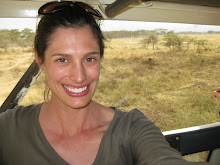Every now and then I read or hear of something that really makes me reflect on my experience in Kenya and what I learned about Development through FSD and ACCES. Driving home tonight, listening to NPR, I heard an interview with one Mr. Peter Van Buren, a state department employee who was sent to Iraq for a year as part of the reconstruction mission.
 |
The State Department was essentially ordered to spend money on the reconstruction––to try anything they could think of to improve Iraq or win the "hearts and minds" of the people. For example, someone on the mission had the brilliant idea to use funds to build a chicken processing plant, without pausing to think...
1. Is there a need for a industrial chicken processing plant? (Not really, buying them live at the market seems to have worked fine for the past 5,000 years)
2. Do most people have refrigeration to store the chicken pieces (no)
3. Who will run the plant after the U.S. leaves (who knows!)
4. Where will the chickens be raised or sourced? Hmmm...
So the U.S. spent $2 million in tax-payer money building the plant, before realizing that they should have answered the above (and many more) questions first. Thus, after it was complete, the plant sat idle––except on the occasions a reporter or diplomat wanted to see it. To show the plant, the State Dept. would send a nearby shah's son to buy every live chicken in a five-mile radius to process. They would run it long enough for the visitor to see it functioning; the visitor would be impressed with the success of the Reconstruction, leave, and the next day the plant would be dark again.
The stories are pretty funny until you think of the myriad ways in which the funding could have been more effectively used at home or abroad... then they're DEVASTATING.
I really hope you listen to the interview or read the transcript––I'd love to hear your thoughts on it. To me, it's a very strong argument for accountability and, you guessed it: teaching sustainable participatory community development methodology.
Love to all of you,
Katy
